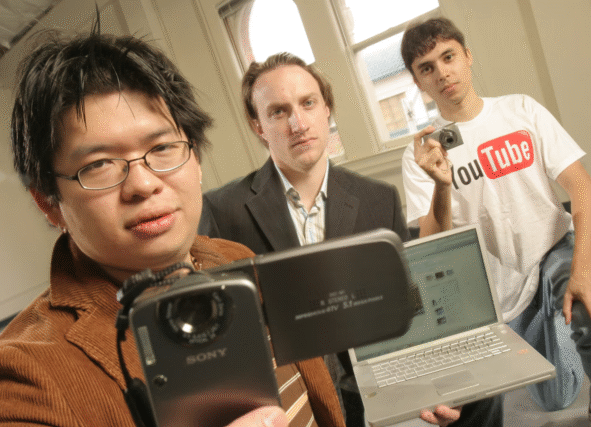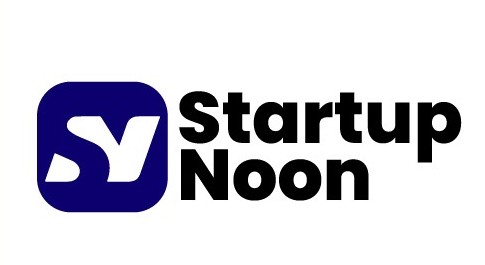By 2025, Jawed Karim’s net worth is estimated to be around $300 million, driven by his early stake in YouTube, savvy investments, and entrepreneurial ventures.
Jawed Karim, a name synonymous with the creation of YouTube, has built an impressive legacy as a tech innovator and entrepreneur. As one of the three co-founders of the world’s largest video-sharing platform, his contributions have shaped how we consume and share content online. By 2025, Jawed Karim’s net worth is estimated to be around $300 million, a figure driven by his early stake in YouTube, savvy investments, and entrepreneurial ventures. This article dives into his life, career, and the story behind his wealth, with a focus on his role in founding YouTube and his financial success.
Early Life and Education

Jawed Karim was born on October 28, 1979, in Merseburg, East Germany, to a Bangladeshi father and a German mother. His family moved to West Germany to escape political instability, eventually settling in Neuss. In 1992, they relocated to the United States, where Jawed attended Saint Paul Central High School in Minnesota, graduating in 1997.
Karim’s passion for technology led him to the University of Illinois at Urbana-Champaign, where he pursued a degree in computer science. However, his entrepreneurial spirit pulled him away from academia. He left the university before graduating to join PayPal, a decision that would set the stage for his future success. He later returned to complete his bachelor’s degree in 2004 and went on to earn a master’s degree in computer science from Stanford University, balancing education with his growing career.
Career Beginnings: From Silicon Graphics to PayPal
Karim’s tech journey started early. While still in college, he interned at Silicon Graphics, Inc., working on 3D voxel data management for large datasets, including the Visible Human Project. This experience honed his technical skills and gave him a taste of cutting-edge innovation.
In 2000, Karim joined PayPal, becoming one of its earliest employees. At PayPal, he crossed paths with Steve Chen and Chad Hurley, who would later become his YouTube co-founders. His time at PayPal was pivotal, not only for the professional experience but also for the relationships he built. Karim contributed to the platform’s anti-fraud systems, showcasing his ability to tackle complex technical challenges.
The Birth of YouTube: A Game-Changing Idea

The idea for YouTube was sparked in 2004 by a simple problem: finding video clips online was frustrating. Karim was particularly motivated by the difficulty of accessing footage of the 2004 Indian Ocean tsunami and the controversial Super Bowl XXXVIII halftime show featuring Janet Jackson. He envisioned a platform where anyone could upload and share videos easily. Meanwhile, Hurley and Chen drew inspiration from the user-driven model of the website Hot or Not, imagining a video-based version of a social platform.
In February 2005, Karim, Hurley, and Chen founded YouTube. Karim played a key role in developing the platform’s technical infrastructure, leveraging his computer science expertise. On April 23, 2005, he uploaded the first-ever YouTube video, titled “Me at the zoo,” a 19-second clip of himself at the San Diego Zoo. Filmed by his friend Yakov Lapitsky, the video has since garnered over 350 million views, cementing its place in internet history.
While YouTube wasn’t the first video-sharing site—Vimeo launched in November 2004—it quickly outpaced competitors. Its user-friendly interface and focus on community engagement set it apart. By mid-2006, YouTube was hosting millions of videos and attracting global attention.
YouTube’s Google Acquisition and Karim’s Payday
YouTube’s Google Acquisition
YouTube is founded by former PayPal employees Chad Hurley, Steve Chen, and Jawed Karim.
“Me at the zoo” becomes the first video uploaded to YouTube, featuring co-founder Jawed Karim at the San Diego Zoo.
YouTube officially launches to the public with 8 million videos being watched daily.
YouTube reaches 100 million video views per day with 65,000 new videos being uploaded daily.
Google announces its acquisition of YouTube for $1.65 billion in Google stock, marking one of the biggest tech acquisitions of the time.
The acquisition is officially completed, with YouTube operating as a Google subsidiary while maintaining its brand identity.
YouTube launches its Partner Program, allowing content creators to earn revenue from advertisements placed on their videos.
YouTube begins serving more than 2 billion video views per day, demonstrating the success of Google’s investment.
Key Acquisition Facts
- Purchase price: $1.65 billion (in Google stock)
- Date announced: October 9, 2006
- Date completed: November 13, 2006
- YouTube was only 1.5 years old at the time of acquisition
- Google maintained YouTube’s separate brand and headquarters
Why Google Acquired YouTube
Google recognized the massive potential of online video sharing and saw YouTube as the clear market leader. The acquisition helped Google:
- Expand its advertising reach beyond text-based ads
- Gain access to a rapidly growing user base
- Strengthen its position in the emerging social media landscape
- Complement its existing Google Video service
As YouTube’s popularity soared, Karim chose to step back from day-to-day operations to focus on his studies at Stanford, taking on an advisory role instead of a full-time position. This decision meant he received a smaller equity share than Hurley and Chen. Still, his stake proved life-changing.
In October 2006, Google acquired YouTube for $1.65 billion in stock, a landmark deal in tech history. Karim’s share amounted to approximately 137,443 Google shares, valued at around $64 million at the time. Adjusted for stock splits and growth, this stake significantly contributed to his wealth. By 2025, Jawed Karim’s net worth of $300 million reflects not only his YouTube windfall but also his subsequent investments and ventures.
Jawed Karim’s Net Worth: Breaking It Down
Karim’s wealth stems from multiple sources:
- YouTube Acquisition: The $64 million from Google’s purchase of YouTube was the foundation of his fortune. His Google stock holdings appreciated over time, boosted by the company’s dominance in tech.
- Investments: Karim has made strategic investments in startups, notably Airbnb and Formatech, which have added to his wealth.
- Y Ventures: In 2008, he co-founded Youniversity Ventures (later Y Ventures) with Kevin Hartz and Keith Rabois, focusing on early-stage tech startups.
- Advisory Roles and Consulting: His tech expertise has likely earned him income through advisory work and speaking engagements.
Unlike some tech moguls, Karim maintains a low profile, avoiding flashy displays of wealth. His net worth reflects a combination of early success and disciplined financial decisions.
Post-YouTube Ventures and Investments
After YouTube, Karim didn’t rest on his laurels. In 2008, he launched Y Ventures, a venture capital firm aimed at supporting young entrepreneurs. One of its notable investments was in Airbnb’s seed round in 2009, where Karim contributed approximately $600,000. Airbnb’s meteoric rise to a multi-billion-dollar company significantly boosted the value of his stake.
In 2020, Karim invested $7 million in Formatech, a company focused on advanced manufacturing solutions. While not all of his investments have been publicly disclosed, his track record suggests a knack for identifying promising tech ventures.
Karim has also explored other interests, including mentoring startups and advocating for open internet policies. His technical expertise and experience make him a sought-after figure in Silicon Valley, though he remains selective about his involvements.
Jawed Karim’s Stance on YouTube’s Evolution
Karim hasn’t shied away from critiquing YouTube’s decisions over the years. In 2013, he publicly opposed Google’s requirement for users to link Google+ accounts to comment on YouTube videos. He updated the description of “Me at the zoo” to read, “I can’t comment here anymore, as I don’t need a Google+ account,” joining a chorus of users who signed a petition with over 240,000 signatures. Google eventually reversed the policy in 2015 and shut down Google+ in 2018.
In 2021, Karim criticized YouTube’s decision to hide dislike counts on videos, calling it “a stupid idea” in a comment on his first video. He argued that dislike counts provide valuable feedback for viewers and creators alike. His outspokenness reflects his commitment to preserving YouTube’s original spirit as a user-driven platform.
The Legacy of “Broadcast Yourself”
YouTube’s early slogan, “Broadcast Yourself,” encapsulated its mission to empower individuals to share their stories. Under Karim’s influence, the platform prioritized accessibility and simplicity, which fueled its rapid growth. By 2010, YouTube was consuming as much bandwidth as the entire internet did in 2000, according to a Daily Telegraph report. It hit 14 billion video views that year and boasted a 43% market share in online video.
By 2025, YouTube remains a cultural and economic juggernaut, with over 2.5 billion monthly active users and billions of hours watched daily. Karim’s vision of a democratized video platform has endured, even as the platform has evolved into a hub for creators, brands, and advertisers.
Jawed Karim’s Net Worth in Context
At $300 million, Jawed Karim’s net worth places him among the most successful tech entrepreneurs of his generation. While it’s smaller than that of some peers—like Chad Hurley, whose net worth exceeds $500 million, or tech giants like Elon Musk—Karim’s wealth is remarkable given his relatively brief operational role at YouTube. His decision to prioritize education over a larger equity stake speaks to his values, yet his financial acumen ensured he capitalized on his early success.
Compared to other YouTube-related figures, such as top creators like MrBeast (estimated net worth $700 million), Karim’s wealth is rooted in ownership and investment rather than content creation. His story underscores the power of building foundational technology that shapes industries.
Lessons from Jawed Karim’s Journey
Karim’s story offers valuable lessons for aspiring entrepreneurs:
- Solve Real Problems: YouTube was born from a gap in the market—easy video sharing. Identifying and addressing everyday frustrations can lead to groundbreaking solutions.
- Embrace Collaboration: Karim’s partnership with Hurley and Chen amplified their collective impact, proving the value of diverse skill sets.
- Stay True to Your Vision: His criticism of YouTube’s policy changes shows his commitment to user experience, even after stepping away from the company.
- Invest Wisely: Karim’s stakes in Airbnb and other ventures highlight the importance of diversifying income streams.
Conclusion
Jawed Karim’s net worth of $300 million is a testament to his role in creating YouTube, a platform that revolutionized how we share and consume video content. From uploading the first video at the San Diego Zoo to cashing in on Google’s acquisition, Karim’s journey is one of innovation, persistence, and strategic thinking. His investments in Airbnb and Formatech, along with his venture capital work, have solidified his status as a tech visionary.
Beyond the numbers, Karim’s legacy lies in YouTube’s impact on culture and communication. His story reminds us that a simple idea, executed well, can change the world—and build lasting wealth in the process. Whether you’re an entrepreneur or a curious reader, Jawed Karim’s path from a college dropout to a multimillionaire is a compelling blueprint for success.

